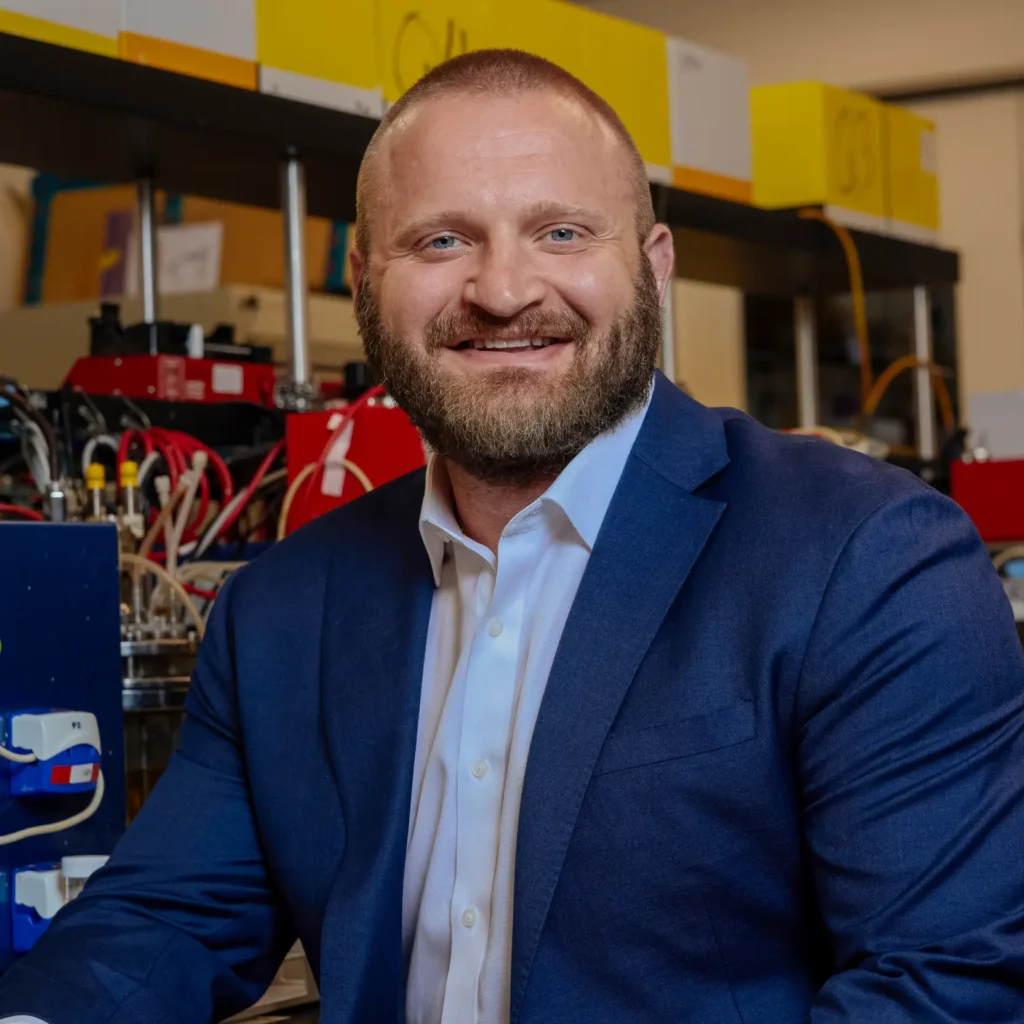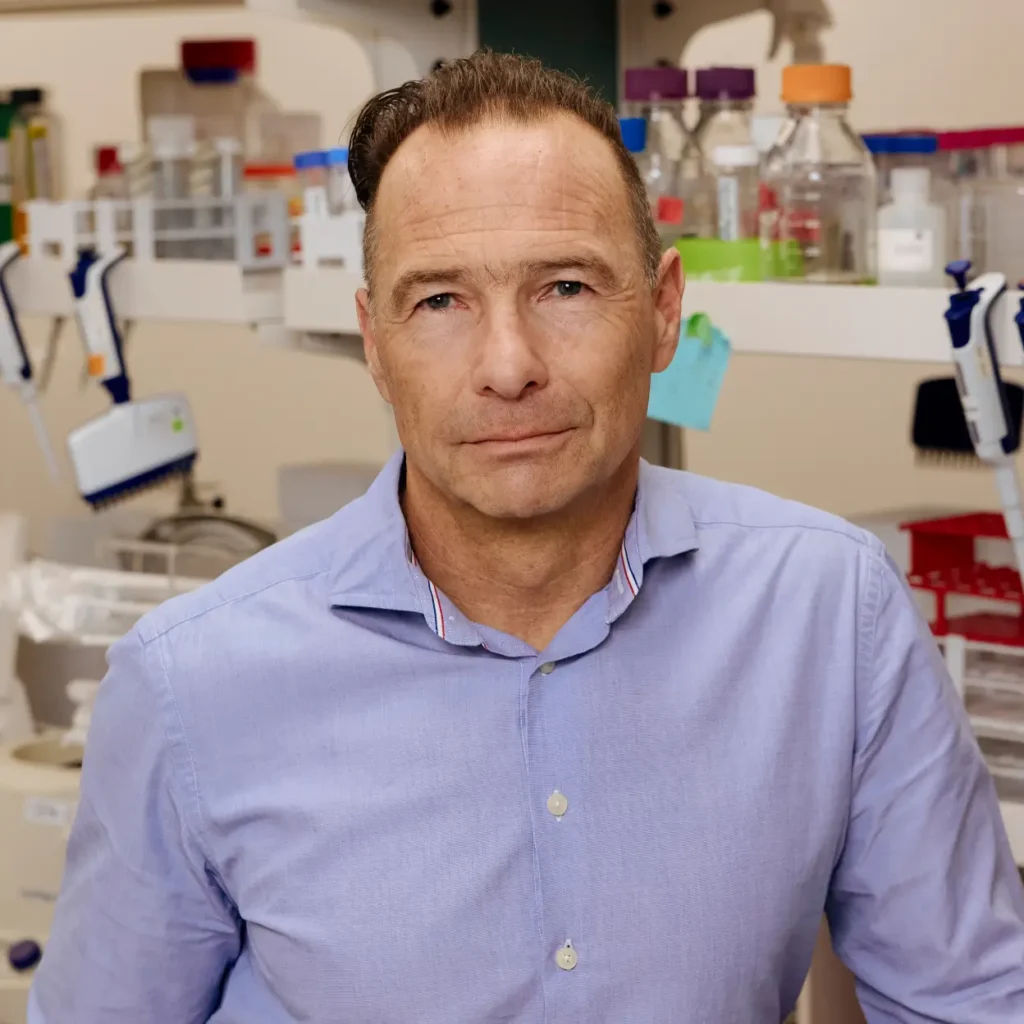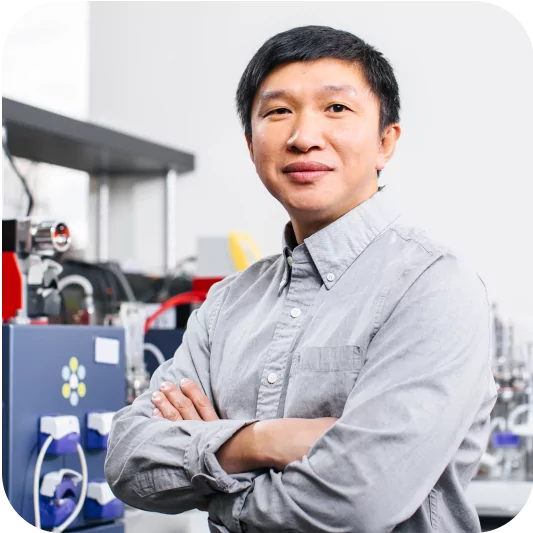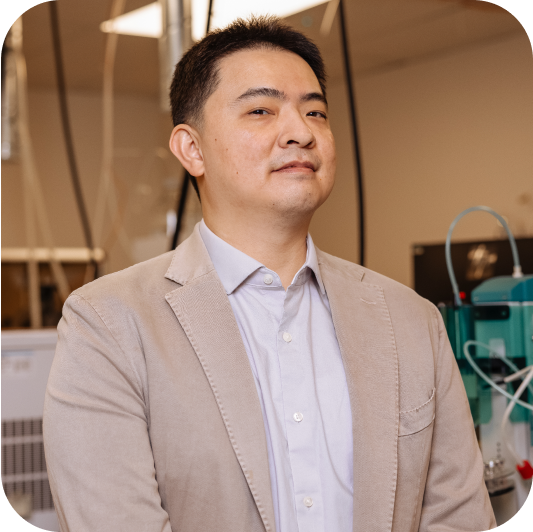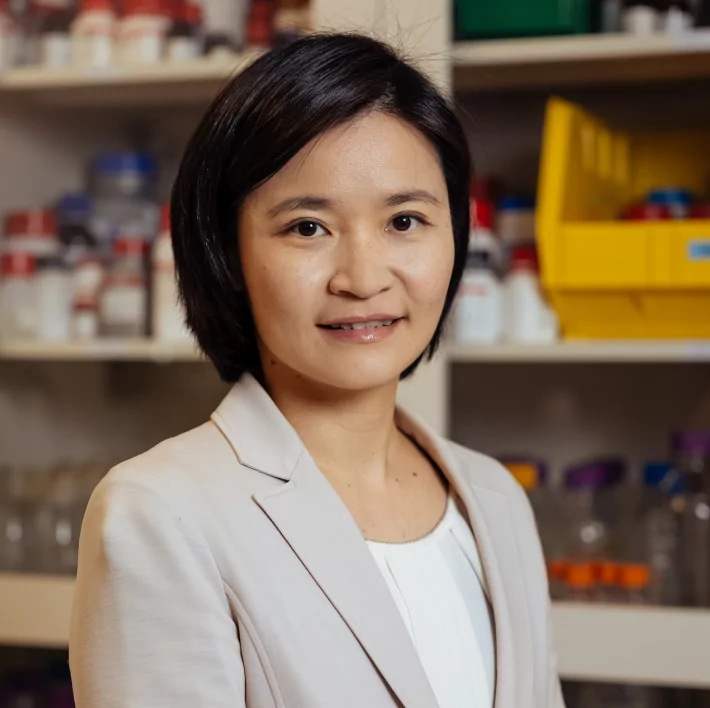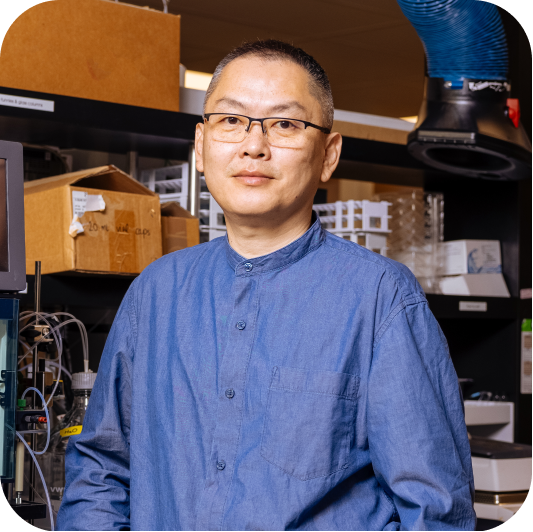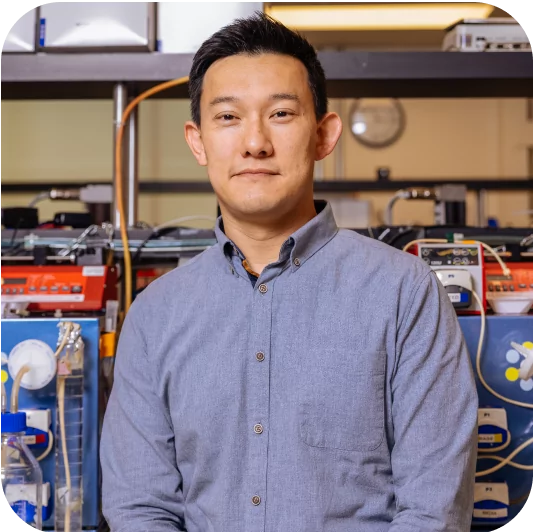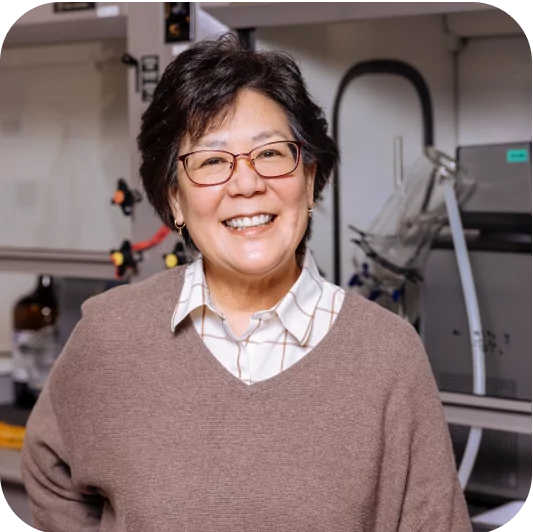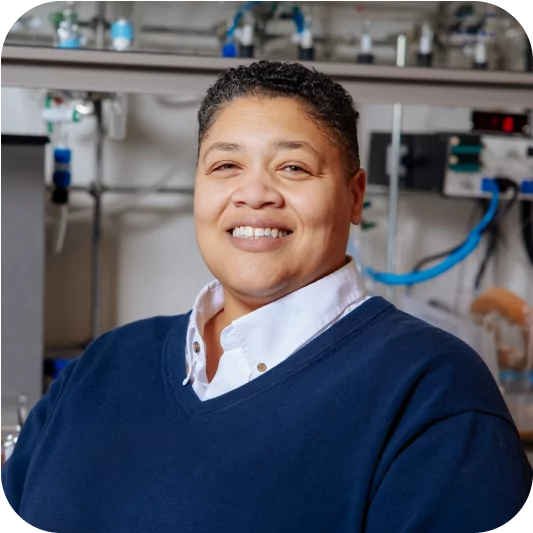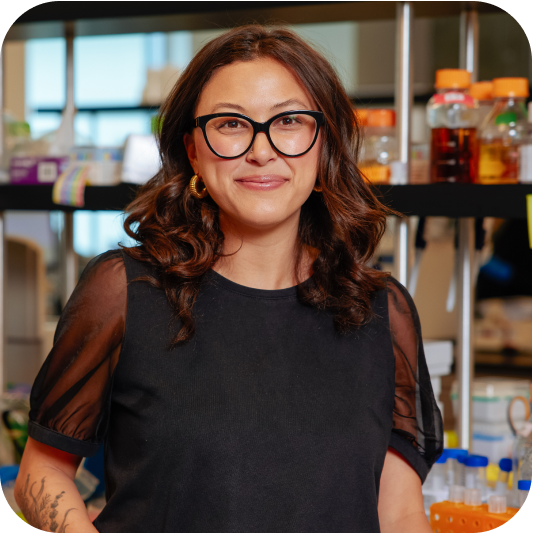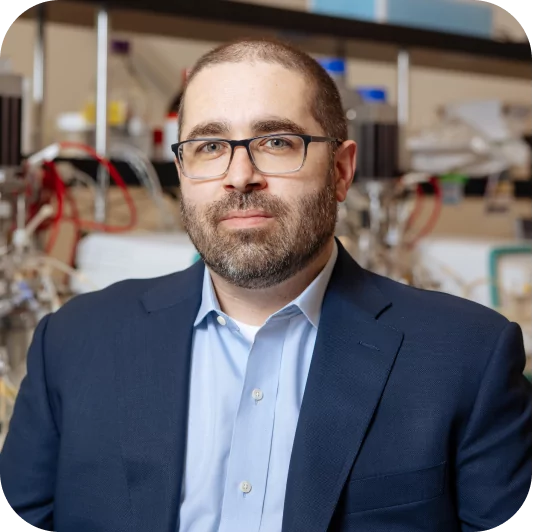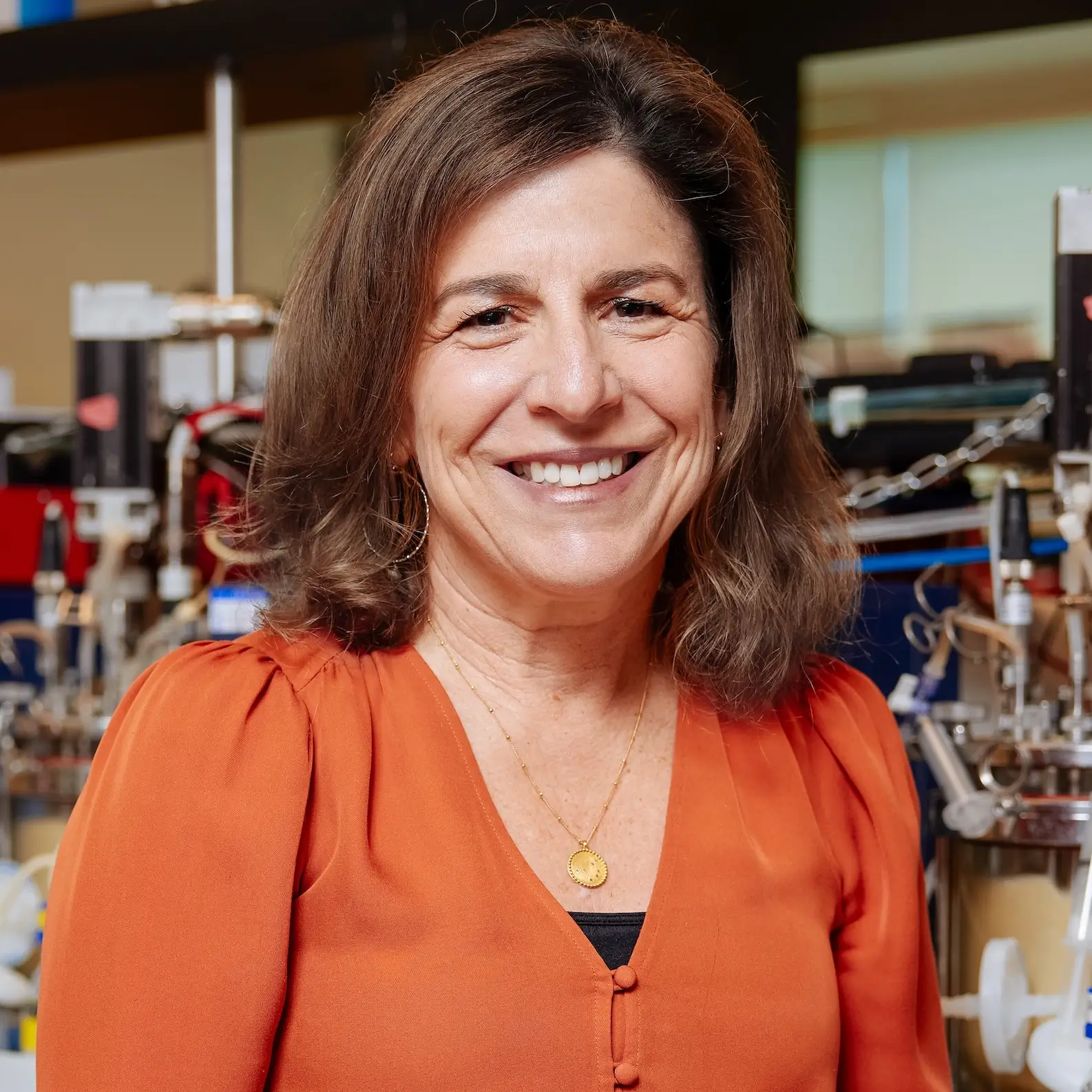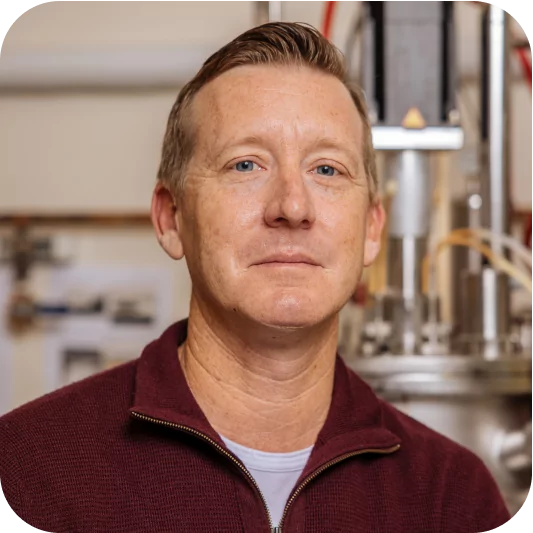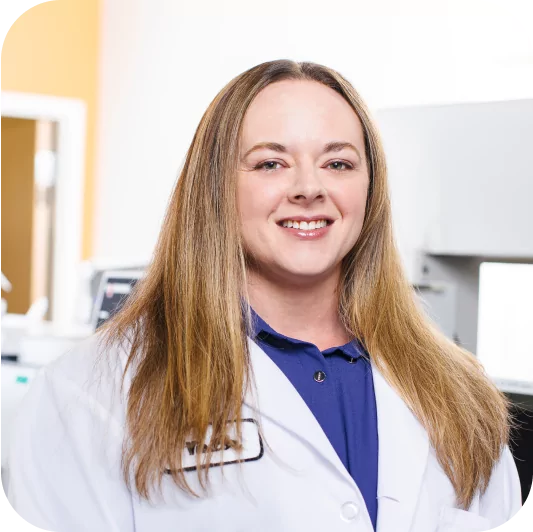As the Vice President of Strategy and Partnerships, Yen-Hsiang Wang is the strategic powerhouse behind Antheia, tasked with bringing its technology and pipeline of products from ideation into realization. As a catalyst for the commercial viability of Antheia’s technology into the pharma world, this scientific innovator-turned-business leader combines his deep bench of scientific expertise in synthetic biology with lessons learned in the business world to drive the company’s success.
With some promising announcements on Antheia’s horizon, Yen-Hsiang recently sat down to share his thoughts on technology, innovation, strategy, and how safe workplaces support dynamic company growth.
You wear many hats in Antheia – strategy, partnerships and finance – and are responsible for bringing its innovations to life in the commercial space. But you actually began your career as a biologist and engineer. What inspired you to move from research to strategy?
I’ve always liked to design things, but I’ve also always been interested in deciphering biology, which is still in my opinion the most sophisticated system ever. I started off my career trajectory in undergrad while working with an economist on a neuroengineering project, where I designed a novel approach to underpin the neural mechanism for strategic thinking in our brain. Even then, I saw myself as an engineer specialized in the field of biology. That work was eventually published in Science, which helped get me into Stanford. It was 2008 when synthetic biology had just started to take off and engineering genetic information and designing proteins or enzymes in all living organisms was becoming more accessible. I was immediately “distracted” – if you can call being fascinated by this amazing field being distracted! – and enamored by the idea that you can take a structural approach to studying and building biology, and that you could even apply it in an effort to improve human wellbeing.
However, it was also a period of time where the industry was navigating a better way to commercialize this cutting edge technology. By this point, I knew that I understood the fundamentals and rhythm of R&D, and I knew I could be a good scientist but I was curious to learn more about the business side of synbio. I wondered if I would be able to make a difference in bridging the gap between this technology and its real world applications. That’s what brought me to this point, and it’s what I strive to do. Make a difference by being the person who bridges the gap between business and deep science innovation in synbio. Once I took the leap toward the business side of things, I began experimenting with various business roles at McKinsey and later Tencent, which eventually led to Antheia.
One would think that it’s important for people in your role to have a scientific background to truly understand the work. What does bridging the gap between deep science and business look like, in a practical sense, and how do you think your scientific and research background informs it?
I’m a believer that everybody’s a scientist. Science is about being inquisitive and reasonable, and thinking through challenges in a structured approach. It’s critical thinking, and collecting and analyzing information before solving problems. What’s particularly important for anyone in this type of role is a desire to learn the science while embracing open and growth mindsets – because the most demanding type of startup is deep science innovation, and it requires all of those things. Working in any scientific field often means that there are many unknowns, but we’re driven toward exploration because we believe that what we’re doing can make the world better. Synthetic biology, machine learning, or quantum computing – you name it; experimentation, failure, and iteration are inherent to all of these fields and critical for driving innovation.
It’s apparent to anyone who knows you that this lights you up, and is your passion.
Absolutely. I get a lot of energy from those bridging moments where I have to consider our stakeholders, constraints, and opportunities, and within it, find a path forward. It is extremely rewarding to find those ways to make the equation work and bridge both sides – science and business – of innovation. It means our work will make a realistic and tangible impact. That’s the engineer in me – wanting to make the intangible, tangible.
I also especially enjoy my role at Antheia because the constant leap between science and business requires almost a holistic, hawk-eyed perspective, and it’s one I’ve carefully honed in myself. As a scientist, you’re trained to think about problems from mostly bottom-up approaches, where you have to amass a lot of research before taking actions. When it comes to business, it is often hypothesis-driven and making decisions with limited, imperfect information. It took a lot of practice to integrate this duality of thinking, switching back and forth between the two perspectives. I find it very helpful and incredibly useful when brainstorming or offering insights to our team, understanding that each of the next-steps come with certain rewards and risks. To me, it is a privilege to drive those strategic decisions and creative solutions, while matching technological progress.
What are Antheia’s greatest opportunities? And what are you most passionate about for Antheia’s future along that pathway?
Personally, I just love Antheia’s technology so much. I’m a big fan of AI, robotics, and synthetic biology and how it allows us to design something hardcore. I like to point to my fandom of sci-fi films (e.g., Westworld) here, because it’s an imaginative world where innovative technology and biology comes together. What Antheia’s doing is a small piece of a similarly huge puzzle, only, it’s real. We’re engineering yeast, which is one of the tiniest and simplest organisms, and doing so at the cutting edge of a thriving deep science technology, all in a big biology setup. While it can still seem very uncertain, the flipside is that the possibilities are endless.
That’s where Antheia’s biggest opportunity lies; we’re sitting within a very unique space, with huge potential, at a really important time. Our team has been working on this technology for strengthening pharma supply chains for decades, and when the pandemic started, it demonstrated how urgent the problem of medicine shortages is. Our technology is an amazing way to disrupt how people approach drug development and discovery.
What’s Antheia’s biggest challenge in bringing that to life?
Deep science technology carries a lot of uncertainty and risk, and this entire industry is working on getting the right calibration to achieve success. That takes a little bit longer than industry investors and partners prefer. A core challenge for every synthetic biology company is navigating those timelines while maintaining our bold vision and aspirations. One thing that helps Antheia is as we head toward our goals, that we communicate the significant progress we are making to bring our vision to life. Driving innovative technology means we need to be planning ahead to meet upcoming needs, while still maintaining a flexible approach to pivot if needed. Ultimately, in this field, nothing is as linear as it looks like.
What do you see as the trajectory for Antheia’s future?
The next two years are critical for us, and the work that comes from it is going to rewrite biology and engineering textbooks. We’ll be pushing our lead program and moving toward commercialization. When our first successful demo run is done, it’s going to be a massive milestone that will make history. Longer term, we envision remaining in a leadership position with our platform, which is going to radically change what’s possible for manufacturing medicine around the globe. This technology can impact entire countries, including developing countries, and will improve human rights. There are many countries that don’t have adequate supply of essential medicines that are critical in reducing human suffering. I see Antheia as the company that will change that.
Your personal connection to the founding team including Christina, who was your PhD advisor, was the reason you say you came to Antheia. But going from corporate to a startup is a different, more challenging experience. What made you say yes, and what keeps you here?
My previous role at Tencent was amazing. I co-led the AI Healthcare Center, working with a lot of great scientists and engineers to drive machine learning applications in smart medical devices, drug discovery, and telehealth care. With the resources of large corporations, I was able to focus on driving strategic directions; however, this is far from a true startup experience where you are working with more limited resources and wear many different hats (there was even a period of time at Antheia where I was processing all the invoices and tracking IT inventory). But I could have joined any startup with a similar mission. The trigger point for me, as I still vividly recall, was the exact moment chatting with Christina in a cafe in Menlo Park. She was describing how she, a prestigious professor at Stanford, was planning to leave her tenured position to make Antheia a reality. My thought was, here’s this person I deeply respect, and she has just an outstanding commitment to the company’s success. If I ever want to sign up for a true startup experience, this is the leader I would want to work with. Hiccups or setbacks happen in every company and challenges emerge as technologies progress – but to have a truly committed, passionate leader sets a company apart, and ahead.
What keeps me here is not just the fulfilling work I do, but the culture and environment. We have a culture of transparency, and it applies to all of us. In my role, I meet every one of the new hires and establish direct relationships with them so that they know we’re a team, and I work hard to make sure that everyone knows that I’m here to support them as a trusted thought partner and sounding board. For me, Antheia is a humble and safe space where we feel comfortable and even encouraged to think about crazy ideas – I feel protected, and that drives innovation in a way that’s unparalleled. I want that for all of my colleagues as well.
If there’s just one thing you’d like others to take away about Antheia, what would it be?
I am going to my favorite quote from Hans Christian Anderson: Just living is not enough. One must have sunshine, freedom and a little flower. It’s so simple. At Antheia, we don’t have to convince ourselves that we’re doing crazy innovative stuff, because we are. We can be comfortable in that notion and who we are and experience the freedom to explore and innovate here. It grows the best flowers. And yeast.
